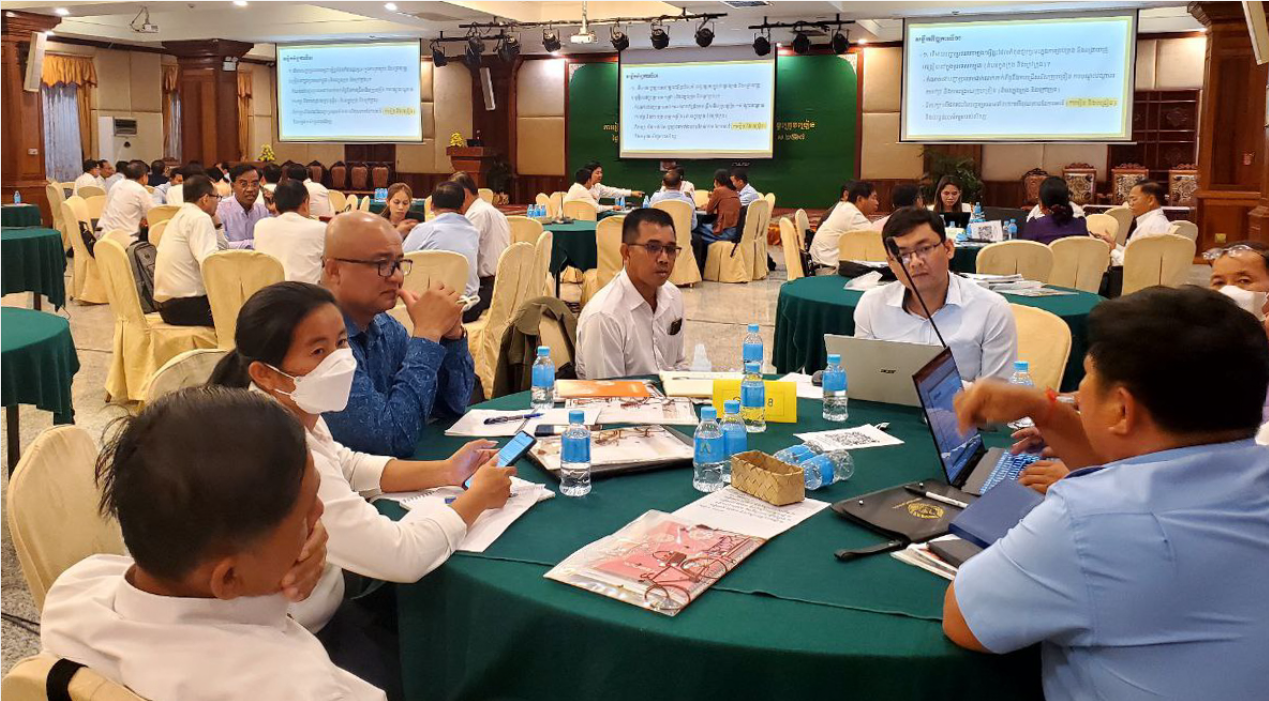
From 24 to 28 October 2023, Cambodia’s Ministry of Education, Youth and Sport (MoEYS) held a workshop titled “Capacity Building for Policy Makers and Planners on Policy and Strategy Development to Tackle Teacher Shortages and Surpluses.” This event was conducted in a hybrid model in the Siem Reap Province, Cambodia. Approximately 100 individuals participated, including leaders from the Ministry of Education, Youth, and Sport (MoEYS), relevant departments, researchers, and Directors of the Provincial Offices of Education (PoE) representing the 25 provinces/cities.
The workshop featured a lineup of both national and international presenters sharing their expertise and insights. As a part of the KIX EMAP Hub’s Rapid Customised Country Support in Cambodia, Gita Steiner-Khamsi (KIX EMAP Principal Researcher, Professor at Teachers College, Columbia University, UNESCO Chair in Comparative Education Policy at the Geneva Graduate Institute) and Dr. Bilal Barakat (Founding Partner at benedex education and development expertise and former Senior Policy Analyst at UNESCO’s Global Monitoring Report) spoke on “Overview of Teacher Management and Deployment in Global Context” and “Simulation Projection Model (CANPRO) and Teacher Need Calculation” respectively, addressing teacher shortages and surpluses and policy analysis tools. At the workshop, participants were actively engaged in the discussion, reflected on the current situation, root causes and solutions and defined best practices to improve teacher management and deployment in their context.
The workshop strengthened collaboration and knowledge-sharing among policy makers. The platform provided an opportunity for participants to exchange best practices and lessons learned. Through collective efforts and the expertise of participants, a policy framework was created, offering new solutions to ensure an adequate supply of qualified teachers while avoiding unnecessary surpluses. This collaboration among stakeholders has the potential to drive positive change and the implementation of comprehensive policies tailored to Cambodia’s specific needs and challenges.
